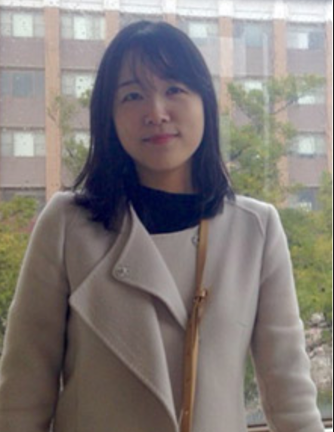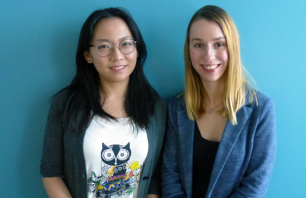Past Research Award Winners

2021 SFBTA Research Award Winner
A comparative systematic review and meta-analysis
between U.S. and East Asian studies
In Young Park (SFBTA Research Award recipient)
Johnny Kim, Cynthia Franklin, Tasha Beretvas, Anao Zhang, Samantha Guz, Audrey Hai, Yong Ju Cho, Chun Liu, Tatsuji Shinohara
One significant area of intervention for solution-focused brief therapy (SFBT) is with youth in school settings. While the effectiveness of SFBT has been shown for a wide range of academic and behavioral difficulties among youth, there is little research that systematically and cross-nationally compares the effectiveness of SFBT on youth developmental outcomes. More comprehensive review is needed to explore cultural fit and meaning of SFBT by including under-examined studies from different countries. Thus, this study uses a systematic review and meta-analytic method to synthesize studies published in the U.S. and East Asian countries (i.e., China, Korea, and Japan) and compare the strength of evidence supporting SFBT as a culturally adaptive and school-based intervention tool. The findings of this study can support the evidence that SFBT is a promising practical guide that can apply to different cultural contexts in school settings to support at-risk racially diverse youth.


2021 SFBTA Research Award Winners
Grief Program with Collaboration from the Columbia University’s Center for Complicated Grief to compliment Solution-Focused Brief Therapy
Julio Martinez & Dr. Lena Green
HOPE Center, New York City
The HOPE (Healing on Purpose and Evolving) Center, in collaboration with Columbia University’s Center for Complicated Grief, will be embarking on providing mental health services to address pre-existing mental health conditions in addition to providing assistance to anyone who is grieving a significant loss. For some individuals, feelings of loss don't improve even after time passes and can be prolonged and debilitating. This is known as complicated grief, or prolonged grief disorder. For those experiencing complicated grief, painful emotions are severe and long lasting which gets in the way of recovering from a loss and resuming one’s own life. This is extremely important when taking into consideration the current Covid-19 pandemic and its devastating effects on communities of color. The HOPE Center will combine Prolonged Complicated Grief interventions with Solution-Focused Brief Therapy interventions based on a brief treatment model that includes providing 10 -12 free counseling sessions to individuals and 8 weeks of group-based therapy. This grant will be used to support communities of color by being culturally inclusive and providing targeted mental health services using a holistic person-centered approach to care in East and Central Harlem.

2020 SFBTA Research Award Winner
Preventing school dropout: Piloting a SFBT app-based prevention intervention
Erica D. Magier, MSW, LSW, PhD candidate
College of Social Work, The Ohio State University
School social workers have had to adapt their practices due to the COVID-19 pandemic. With students now attending school fully or partly online, school-based practitioners need new online models to intervene and prevent students from dropping out. Additionally, although Solution Focused Brief Therapy (SFBT) has shown to be effective in schools, little is known about implementation of SFBT in schools. The proposed pilot study will examine the effectiveness and implementation of a four-week SFBT worksheet intervention adapted for app-based delivery. Via a modified mixed-method design with a quasi-experimental component, the intervention is designed to improve the attendance, grades, and behaviors of students deemed the most at-risk of dropping out of school. To evaluate effectiveness of the SFBT intervention, quantitative data such as composite student performance data will be collected pre and post-intervention. Next, school social workers implementing the intervention will be asked to share the facilitators and barriers of implementing the intervention. There exists limited research on the intersection of SFBT, school dropout prevention, and implementation science. Thus, evaluating and exploring the effectiveness and implementation of an app-based Solution-Focused dropout prevention intervention can help to identify key implementation strategies to help improve both implementation and intervention outcomes.

2020 SFBTA Research Award Winner
Effectiveness of Solution-Focused Brief Therapy as a Mental Health Treatment: An Evidence and Gap Map
Anne S. J. Farina, PhD, MSW
Department of Social Work, Seattle University
Solution-Focused Brief Therapy is an effective intervention for a variety of mental health outcomes in different clinical settings. To synthesize the current available evidence, an evidence and gap map (EGM) will be created to visually represent existing primary studies/impact evaluations and systematic reviews. The purpose of the proposed EGM is to identify and map the existing evidence of the effectiveness of Solution-Focused Brief Therapy as a mental health treatment among adults. It will also identify gaps in the research, consequently identifying next steps for research in the SFBT field.


2020 SFBTA Research Award Winner
School Counselors’ Experiences Utilizing Solution-Focused Brief Therapy Techniques in School Settings
Rawn Boulden, PhD , Matthew Tolliver, MA, PhD Candidate
Department of Counseling and Learning Sciences, West Virginia University
School counselors play an important role in supporting all students in their academic, college and career, and social emotional development. Through the implementation of a comprehensive school counseling program, they collaborate with key stakeholders (e.g., teachers, parents/families, administrators) to address inequities in student outcomes. They are highly-visible members of the school community and work tirelessly to ensure students’ needs are being met. Scholars have expressed numerous benefits of employing solution-focused tenets in school settings, including its straight-forward approach, utility across school-based situations (e.g., solution-focused consultation), and its strengths-based orientation. Furthermore, solution-focused brief therapy is commonly lauded as an intuitive approach counselors can employ when working with children facing various issues. While limited research exists regarding its utility in school settings, scant research exists discussing professional school counselors’ experiences utilizing SFBT in school settings. The researchers aim to address this critical gap, employing phenomenological research methods to better understand school counselors’ lived experiences through facilitating focus groups with current school counselors across various urbanicities and building levels. Through these efforts, the findings and implications will help inform school counselor practice, research, and preparation while bridging the gap between research and practice.
2019 SFBTA Research Award Winners
Solution-focused brief therapy in Iran:
A scoping study, systematic review, and meta-analysis
Swathi Reddy, Jaimie O’Gara, Mitra Naseh
Numerous scientific publications focusing on the effects of solution-focused interventions among diverse populations in Iran have emerged over the last decade. However, little, if any formal insights about these efforts are being systematically captured and shared at a wider scale for enhancing knowledge within the country and around the world. In response to this gap, our study first undertakes a scoping review to provide a map of all available evidence on solution-focused interventions in Iran and then a systematic review and meta-analysis to critically appraise extracted information in relation to a particular outcome of interest given the results of the preceding analysis. We rely on outcome studies published in both English and Persian/Farsi to uncover the full spectrum of strengths, challenges, and opportunities facing solution-focused approaches in Iran, and in turn produce a set of recommendations that will provide a framework for improving its practice with Iranian populations. Not only is this the first known review of SFBT outcome research from Iran, but also the first scholarly work on solution-focused interventions to introduce the scientific contributions of Iranian researchers to the global research community.



2019 SFBTA Research Award Winner
A Pilot Evaluation of Solution-Focused and Body-Mind-Spirit Group Therapy for Mental Health and Trauma Symptoms among Asian-American Immigrant and Refugee Youth
Ray Eads
Mental health and trauma symptoms are common among immigrant and refugee populations, and research increasingly implicates the role of body-mind connections in the response to trauma. Culturally appropriate treatment also presents a challenge, especially when psychotherapeutic treatments originate in a predominantly Western worldview. Solution-focused Brief Therapy (SFBT) has shown effectiveness across a wide range of geographic locations and cultures, likely due to its constructivist and strengths-based philosophy that honors clients’ unique perspectives, values, and goals. Body-mind-spirit (BMS) practices such as mindfulness meditation, breathing exercises, and relaxation techniques have also shown evidence of effectiveness with mental health and trauma symptoms, and many BMS techniques originate from Eastern philosophies and religions. Integrated SFBT and BMS group therapy offers the potential to enhance SFBT with adjunctive BMS practices, and may be an especially appropriate cultural adaptation for Asian-American immigrants and refugees. The goal of this study is to provide a pilot evaluation of solution-focused and body-mind-spirit group therapy with youth at an afterschool program serving underprivileged, immigrant, and refugee youth who are predominantly Asian-American. A pretest-posttest design will test for changes in mental health and trauma outcomes to provide initial evaluation of the efficacy of SFBT and BMS group therapy with this population.

2018 SFBTA Research Award Winner
Randomized controlled trial of an SFBT group wellness intervention for women living with HIV
Helen Taylor Yates, LCSW
The study aims to examine the effectiveness of a solution-focused
group therapy wellness intervention for women over the age of 18 who are HIV positive. The 6-session intervention, originally adapted from an SFBT manual and wellness intervention research, aims to provide a more comprehensive care approach for women living with HIV and serve as an alternative for a standard of care psychotherapeutic peer support group.

2018 SFBTA Research Award Winner
Using solution-focused brief therapy to improve self-advocacy skills for college students with disabilities
Katherine Nieweglowski and Sang Qin
The study aims to transform a current
implementation strategy for college students with disabilities
into a solution-focused brief therapy based intervention. The
study will help to positively influence the educational and
occupational outcomes of college students with disabilities as it
serves as an alternative intervention to improve self-advocacy skills.
2017 SFBTA Research Award Winner
Effectiveness of Solution Focused Brief Therapy on Self-Concept, Self-Esteem and Adjustment of Bullied Adolescents
Richa Malhotra, PhD scholar
Promoting a healthy social, emotional and psychological adolescent development is an important objective of every nation’s health policy and rightly so, as the future of nations depends on them. This goal is likely to be impeded by the social evil of bullying, which is a critical issue for adolescent health globally. The objective of the present study is to ascertain the effectiveness of SFBT in promoting self-concept, self-esteem and adjustment patterns of bullied adolescents. The participants for the present study will be adolescents aged between 13-18 years. Identification of students facing bullying shall be done using Reynolds Bully Victimization Scale. A total sample of 30 will be selected, 15 each for experimental and control group. Purposive sampling was used for this purpose. Pre-Test-Post-Test Control group design will be used. Ethical consideration of confidentiality, informed consent, voluntary participation will be ensured. Scores for Self-Concept, Self-Esteem and Adjustment of bullied adolescents will be obtained using Self-Concept Questionnaire, Rosenberg’s Self-Esteem Scale and Global Adjustment Scale respectively. The intervention will be planned based on SFBTA treatment manual (2nd version) as developed by Solution Focused Brief Therapy Association, 2013. A mixed methods design will be used for data analysis. This will involve the use of Non-parametric statistics (for analysis of quantitative data) and Case study approach.
2017 SFBTA Research Award Winner
Assessing the effectiveness of Solution-Focused Brief Therapy with Animal-Assisted Therapy: A microanalysis of Face-to-Face Dialogue
Valerie Handley, M.S., Doctoral Student
Animal-assisted therapy and Solution-focused brief therapy has previously been discussed as a possible means of intervention (Pichot, 2012). There has been no analysis of the effectiveness of combining these two interventions together. This study will use microanalysis of face-to-face dialogue to evaluate the effectiveness of using a Solution-focused intervention with Animal-assisted therapy.


2016 SFBTA Research Award Winner
Title: Assessing the Effectiveness of Solution-Focused
Brief Therapy for Couples Raising a Child with Autism: A Clinical Outcome Study
Brie Ann Turns, M.S., LMFT-A, Doctoral Student
The prevalence of raising a child with an autism spectrum disorder (ASD) is at an all-time high (Christensen et al., 2016). Researchers have found that raising a child with ASD can decrease marital satisfaction and parent’s mental health (e.g. Hartley et al., 2010; Weiss, 2002). Researchers have also found a circular relationship between parent’s mental health and the diagnosed child’s symptomatic behavior (Hastings & Johnson, 2001). Although research has thoroughly investigated and identified effective treatments for the ASD child, treatment for parents’ mental health has been overlooked. To being filling this gap in the literature, a clinical outcome study will be conducted investigating the effectiveness of solution-focused brief therapy (SFBT) for parents raising a child with ASD. A multiple baseline design across subjects will be used to indicate if SFBT 1) is an effective treatment model for couples, 2) will increase marital satisfaction, and 3) will indirectly decrease the diagnosed child’s symptomatic behavior.
2015 SFBTA Research Award Winner
How Do Teachers Maintain Students with Emotional Concerns in the Classroom?: A Grounded Theory
Hannah Szlyk, MSSW, LCSW
At-risk behaviors, including substance abuse, suicidal ideation, and self –harm, are prevalent amongst teenage youth in high school settings. For teachers, focusing on the academic and emotional needs of their students encourages skilled decision-making and continued awareness of the presenting problems of their students. Evidence-based interventions such as Solution-Focused Brief Therapy (SFBT) have been used to guide teacher decision-making as a method to address truancy, graduation rates, and emotional issues. Using grounded theory, the researcher is conducting interviews with teachers working at an alternative high school founded in solution-focused communication to understand the process of maintaining students with at-risk behaviors and emotional needs in the classroom. As preliminary results demonstrate, teacher identification of student issues and decision-making occurs in the context of teaching wisdom, teacher-student relationships, and consisted of an integrated process of reciprocated interactions, problem-solving and utilization of school-based and external resources. Recommendations for staff development and support, as well as the assimilation of school curriculums based in solution.


2015 SFBTA Research Award Winner
Examining the Effectiveness of Solution Focused Art Therapy for Sleep Problems of Children and Adolescent with Traumatic Experience
Chang Liu, MSW, Ph.D candidate
A large number of children and adolescents experience traumatic events and develop posttraumatic stress symptoms and posttraumatic stress symptoms disorder (PTSD) (Finkelhor, Turner, Ormrod, & Hamby, 2009; PTSD: National Center for PTSD). Sleep problems such as having frightening dreams, re-experiencing of an event, being afraid of darkness, resistance to sleep/sleep alone are commonly seen among children who experienced trauma (American Psychiatric Association [DSM-V-TR], 2013; Thabet, Abed, & Vostanis, 2004). However, sleep problems among this population especially young population are often overlooked and lacking in-depth research. Traditional psychotherapies (verbal therapy) like trauma-focused cognitive behavior therapy (TF-CBT) have been found not enough to express the complicated and unconscious emotions (Beers & De Bellis, 2002). Thus, creative interventions are required for these young individuals. Art therapy is a holistic intervention that emphasizes interconnection in the body-mind system is a process of integrating and reprocessing traumatic memory into consciousness (Malchiodi, 2011; Odell, 2011). This study will adopt a solution-focused approach of art therapy (SF-AT) to help children deal with sleep problems and post traumatic symptoms. The study will sample children and adolescent aged from 7-18 who have traumatic experience and randomly assign the participants to an 8-week SF-AT and control group. Measurements used in this study are the Trauma Symptoms Check List for Children (TSCC), Children’s Sleep Habits Questionnaire for Children (CSHQ). The aim of this study is to determine whether art therapy is efficacious in relieving sleep problems for young people with traumatic experience, and whether SF-AT has better outcome results than the control group. Two-way repeated measures Multivariate Analysis of Variance (MANOVA) will be used for the data analysis. Qualitative data will be collected through post-treatment focus group and grounded theory approach will be used in data analysis (Corbin & Strauss, 2008).
2014 SFBTA Research Award Winner
Testing a SFBT Promotora Intervention for Hispanics with Traumatic Brain Injury
Kristen Linton, MSW, Ph.D.
Hispanic survivors of traumatic brain injuries (TBI) suffer poor accessibility to services, worse outcomes, and are more likely to depend on their families for caregiving than others, yet no comprehensive intervention exists to specifically address the disparities they experience. Solution focused brief therapy (SFBT) and the promotora model, a culturally embedded lay health worker intervention, have demonstrated efficacy in improving outcomes in various health conditions among Hispanics yet has not been adapted for patients with TBI and their caregivers. The knowledge gained from previous SFBT and promotora interventions will be used to pilot the Promotora Cerebro intervention administered by bicultural and bilingual lay health workers trained in SFBT and compare it to a telephone follow-up intervention among 20 Hispanic patients with TBI and 20 of their corresponding caregivers in Los Angeles and Kern County, CA. Half of the patients and caregivers will be randomly assigned to each condition. The study will develop implementation protocols for Promotora Cerebro and examine the feasibility and acceptability of the curriculum. A pre-post test experimental design with a 3-month follow-up will assess the intervention’s impact on participants’ functional ability, employment, depression and somatic symptoms, and caregiver burden.


2014 SFBTA Research Award Winner
Examining the Effectiveness of a Short-Term Solution-Focused Wellness Group Intervention on Perceived Stress and Wellness Among College Students
James Beauchemin, LISW-S, PhD Candidate
Heightened stress levels and compromised well-being are typical among college students (Callicchia & Graham, 2006; Kausar, 2010), which can lead to poor performance and high attrition rates. This research study will examine the effectiveness of a short-term (7-week) intervention utilizing solution-focused brief therapy integrated with a holistic wellness model (Indivisible Self Model of Wellness) on perceptions of stress and wellness among college students. A randomized, controlled design will be employed, and data will be collected pre / post intervention, and at 6-week follow-up. In addition, semi-structured interviews will be conducted for treatment group participants after the completion of the wellness-based intervention. Fidelity measures will be used for both the solution-focused wellness and control groups. Study findings may provide valuable information about the effectiveness of SFBT on stress and wellness, and establish a short-term solution-focused wellness protocol for use with the college student population.
2013 SFBTA Research Award Winner
School-Based Mental Health Services: The Implementation of Solution-Focused Brief Therapy with At-Risk Youth in an Alternative School Environment
Martha Hinchey, M.S.
The overall purpose of the proposed study is to determine the efficacy of school-based SFBT with at risk youth in an alternative school environment. Additionally, the potential relationship between therapist alliance and treatment outcomes and therapist adherence to SFBT assumptions will be evaluated. Nine enrolled children and adolescents between the 6th-12th grades within the identified alternative school will be included in the study. In addition, a parent or legal guardian of each of the 9 students and a teacher of each of the 9 students will be recruited to participate in the study. The present study incorporates a rigorous research design with the inclusion of outcome ratings, behavior ratings from multiple informants, a therapist alliance measure, and a fidelity instrument. Furthermore, the use of many data collection points (i.e., baseline, pre-test, 6-intervention sessions, post-test, and 6-week follow-up) and a concurrent multiple-baseline design enhances the quality of the methodology. Findings from this study may provide valuable information on the benefit of SFBT with children and adolescents in an alternative school environment, as well as on the potential relationship between therapist alliance and treatment outcomes with at risk youth in this setting. Because of the limited research that exists on the use of SFBT within an alternative school environment and on the role of child-therapist alliance in treatment outcomes, it is believed that the present study may contribute to the literature in these areas.


2012 SFBTA Research Award Winner
The Effectiveness of SFBT: The Educational Bottom Line
Cathy Grover Ely, PhD, L.S.W.
Solution-focused brief therapy (SFBT) has shown promise as a useful approach in working with at-risk students. Increasingly, demands are being placed on school social workers to identify treatment interventions that positively affect the educational bottom line. The study will utilize a 4-session SFBT worksheet-based intervention developed by the author. Goals will be individually co-constructed with high school students at risk for school failure to address the outcome measures of attendance, grades, and behaviors. The identified group of at-risk students will be divided such that half of the students are assigned to the SFBT intervention and the other half receives treatment as usual. In addition, a control group of waitlisted students is expected to form. Self-reported scaling and student records provide the basis for the pretest, posttest, and follow-up measures. In addition to testing for effectiveness, documentation of treatment fidelity and saliency of SFBT components will be explored.
2012 SFBTA Research Award Winner
Youth Offender Diversion Alternative
Kristin Whitehill Bolton, M.S.W., PhD candidate
This study evaluates the Youth Offender Diversion Alternative (YODA), which is a community-based volunteer diversion program for youth charged with assault against a non-intimate family member. Through a university-court partnership, YODA attempts to increase non-offending behaviors through a three-phase program (referral, assessment, and treatment) using solution-focused brief therapy. Program outcomes include short-term and long-term outcomes. Short-term outcomes include self-sufficiency, resilience, aggression, familial relations, and goal attainment, which will be assessed by an array of standardized assessments. The long-term outcome is non-occurrence of re-offense one year from the date of completion of YODA. Recidivism rates will be calculated based on arrest records at both six-month and one-year follow-up after program completion.


2011 SFBTA Research Award Winner
Solution-Focused Teacher Coaching:
Improving Classroom Climate with the WOWW Intervention
Michael S. Kelly and Robin Bluestone-Miller Loyola University Chicago School of Social Work Family & School Partnership Program
School mental health professionals have long known that their teacher colleagues are one of their primary client populations. The WOWW (“Working on What Works”) teacher coaching intervention (Berg & Shilts, 2005) allows school mental health professionals to target their interventions at a classroom level with the teacher and her classroom as the “client.” This pilot project tested the 10-week WOWW intervention in a suburban Chicago elementary school district in 5 classrooms, using a wait-list control design. Classroom teachers completed measures of teacher self-efficacy and teacher burnout. Results showed that WOWW classroom teachers improved their efficacy in student engagement, instructional strategies, and classroom management compared to the control classrooms. Both treatment and control classrooms had low levels of burnout and showed no change in teacher burnout scores from pre- to post-test. Implications for future WOWW research will be discussed.
2011 SFBTA Research Award Winner
In-Home Brief Therapy for Families with Troubled Youth
Trish Mares, M.Ed., PC-CR, LSW
Patricia Mares has worked with hundreds of troubled youth in Ohio for over ten years as a case manager and in-home therapist. Having reviewed the trauma-informed care and Reactive Attachment Disorder (RAD) literature and attended the 2010 and 2011 Solution-Focused Brief Therapy Association (SFBTA) conferences, Mrs. Mares has developed a SFBT-based in-home intervention for caregivers of troubled youth named “CONTROL”. Descriptive data are being collected through a four-year pilot study approved by the Ohio University Institutional Review Board (IRB). An initial cohort of six troubled youth and caregivers were enrolled into the study between July and December of 2011. Preliminary, anecdotal data on the outcomes of these cases were presented at the 2012 SFBTA conference. Quantitative analysis of baseline data collected in fall 2011 and one-year follow-up data currently being collected will be examined in winter 2013 and written up for submission to a scholarly journal clinical practice in social work or counselor education in spring/summer of 2013.


2010 SFBTA Research Award Winner
SFBT Mentoring for First Generation &
Non-Traditional College Students
Alvin Mares, PhD, LSW
In the United States, 31% of all full-time college students drop out during their first year of study. First generation, low income students are four times more likely to drop out than higher income, second generation students. Many lower income first generation and non-traditional students attend local community colleges and branch campuses of larger public four-year institutions. Ohio University—Chillicothe (OU-C) is one such institution, with an enrollment of approximately 2,400 students and an overall first year drop out rate of 48%. Since April of 2010, Dr. Mares (OSU) and Drs. Mahaffey and Preece (OU-C) have been developing and examining the feasibility of a solution-focused brief therapy peer mentoring program for students enrolled in the Human Services Technology Program at OU-C – an Associate’s degree program for students interested in pursuing careers in the field of human services (e.g., social work, psychology, counselor education). During the “baseline” 2010-11 academic year, the observed drop out rate among 33 new students (“mentees”) was 48%, and the graduation rate among 24 continuing students (“mentors”) was 63%. During fall semester of 2012, 46 mentees and 11 mentors were recruited to participate in the initial intervention year of the program, consisting of weekly SFBT groups led by Dr. Mares and individual mentoring/coaching meetings between peer mentors and mentees throughout spring semester of 2013. Retention and graduate rates for this second cohort of students will be computed in November 2013 to compare the baseline and initial intervention year of this four-year pilot/feasibility study.


